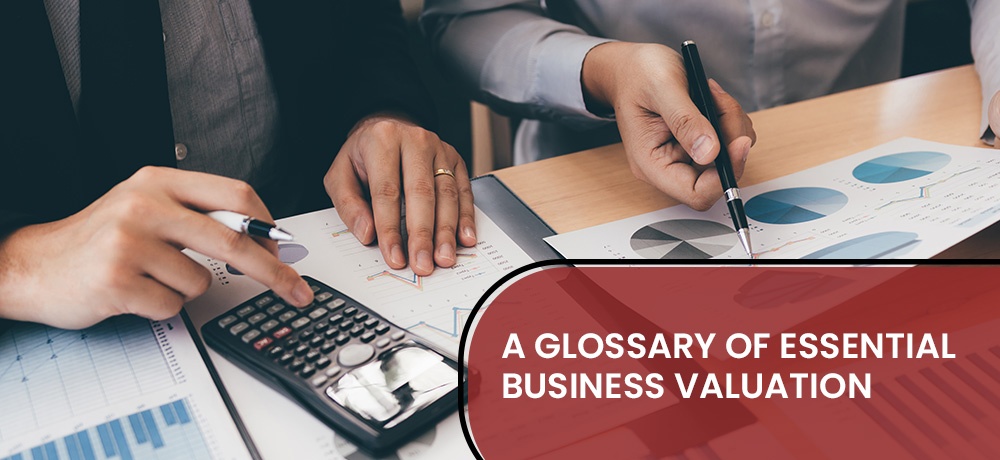- August 23, 2023
- Posted by: admin
- Category: Uncategorized

Every industry has its own language and terms. These words and phrases can be confusing to anyone who is not part of the daily operations of a specific industry, and the business valuation sector is no exception.
To help you understand the terms and phrases regularly used when working with business valuators, Rosehood Global Financial Inc. has created this handy reference guide. Here you’ll find valuable information allowing you to comprehend and communicate your operational and financial needs effectively.
Fair market value
For our purposes, fair market value is defined as the highest price available in an open and unrestricted market between informed, prudent parties acting at arm’s length and under no compulsion to act, expressed in terms of money or money’s worth, represented by Canadian dollars.
It is important to note that while fair market value anticipates the “highest price,” an intrinsic value is generally calculated unless there is evidence available regarding the existence of special purchasers who will pay some amount in excess of intrinsic value. Intrinsic values are notional values based upon rates of return required by a potential purchaser, given economic and business conditions existing at the Valuation Date, without considering possible synergistic benefits or economies of scale that might accrue in differing degrees to arm’s length purchasers.
Tangible asset backing
Tangible asset backing is an amount equal to the aggregate value of all tangible and identifiable intangible assets, where the latter have values that can be separately determined, and where the value of both tangible and identifiable intangible assets has been determined under a going concern assumption (i.e., on the basis of ‘value in use’ as one component of going concern value, as opposed to market value or ‘value in exchange’ for those same assets sold on a piecemeal basis for alternate use), minus all liabilities.
Redundant assets
Redundant assets are assets, which are excess to (and therefore, do not influence) the going concern value of the operating assets of a business. These assets can be withdrawn by a vendor before closing a sale transaction or by a purchaser after closing, without negatively impacting the value of the entity’s business operations.
Enterprise value
The enterprise value is the total value of a business, including both its structural debt and equity components.
Valuation
Valuation is the act or process of determining the value of a business, business ownership interest, security, or intangible asset.
Asset method
The asset (asset-based) method or approach is used to determine the value of shares either where:
a. Asset values constitute the prime determinant of corporate worth, depending on the nature of the operations (for example, a real estate holding company or an investment holding company); or
b. Liquidation is contemplated because the business is not viable as an ongoing operation
Adjusted book value
Adjusted book value or adjusted shareholders’ equity is the equity that results when goodwill is eliminated from an unadjusted balance sheet, and all other assets are restated to fair market value. Each asset and liability is adjusted to its current or fair market value at the Valuation Date, on a going concern basis (as opposed to realizable liquidation values). An appropriate amount for income taxes arising as a result of the above adjustments may be deducted, depending on the circumstances.
Liquidation value
Liquidation value is the net amount of money, if any, available to equity owners following a voluntary, orderly liquidation or a forced sale. Under this scenario, a going concern is not assumed.
Earnings method
The earnings method is used where the business (shares or assets) being valued is earning a fair return on its capital employed, and the hypothetical purchaser wishes to acquire the future indicated earnings generated by the enterprise. That is, the earnings value of a going concern is based upon the yield to an investor, at the desired rate of return on his investment, having regard to several factors.
Market approach
The market approach to valuation is a general way of determining a value indication of a business (assets or shares) using one or more methods that compare the subject to similar businesses, business ownership interests, and securities that have been sold. Examples of methods applied under this approach include:
a. The guideline company/asset method and
b. Analyses of prior transactions in the ownership of the relevant company
If you’re looking for business valuators in Toronto, ON, reach out to the experts at Rosehood Global Financial Inc. . We offer our services across Guelph, Peterborough, Barrie, Port Perry, Hamilton, Kitchener, Toronto, Ajax, Oshawa, Burlington, Milton, Oakville, Brampton, Mississauga, Markham, Newmarket, Vaughan, GTA, Canada, Los Angeles, New York, Orlando, Miami, Chicago, Las Vegas, Jeddah, Riyadh, Dubai, and Abu Dhabi. Our key areas of expertise include finding innovative ways to increase business value for clients, problem-solving, and reducing costs. Our professionals are functional experts in the field of business valuations. They have been engaged to provide valuation services in many industry sectors over the course of their careers and can certainly help your business flourish.
View our full list of services here, read our customer reviews here, or get in touch with us here.
